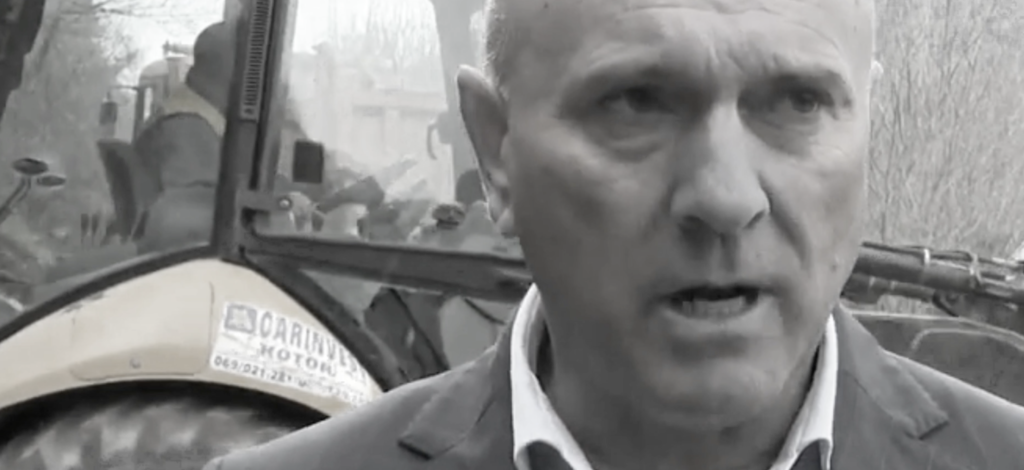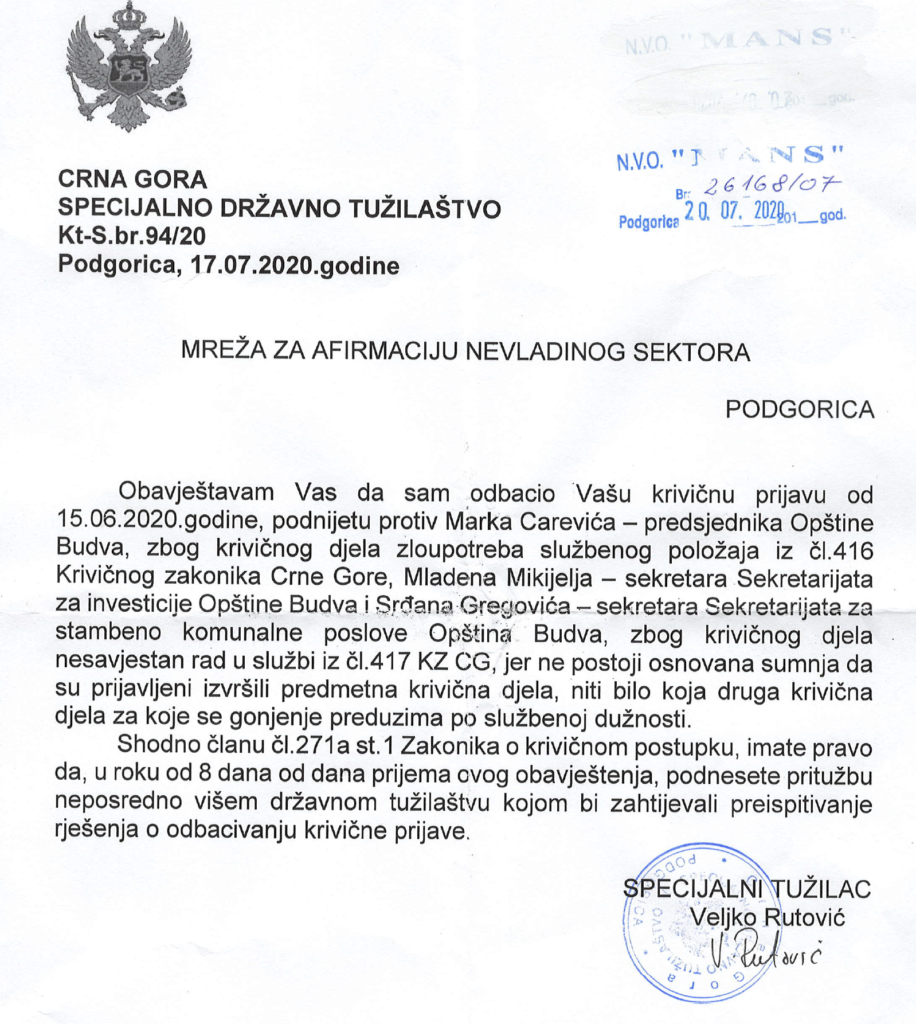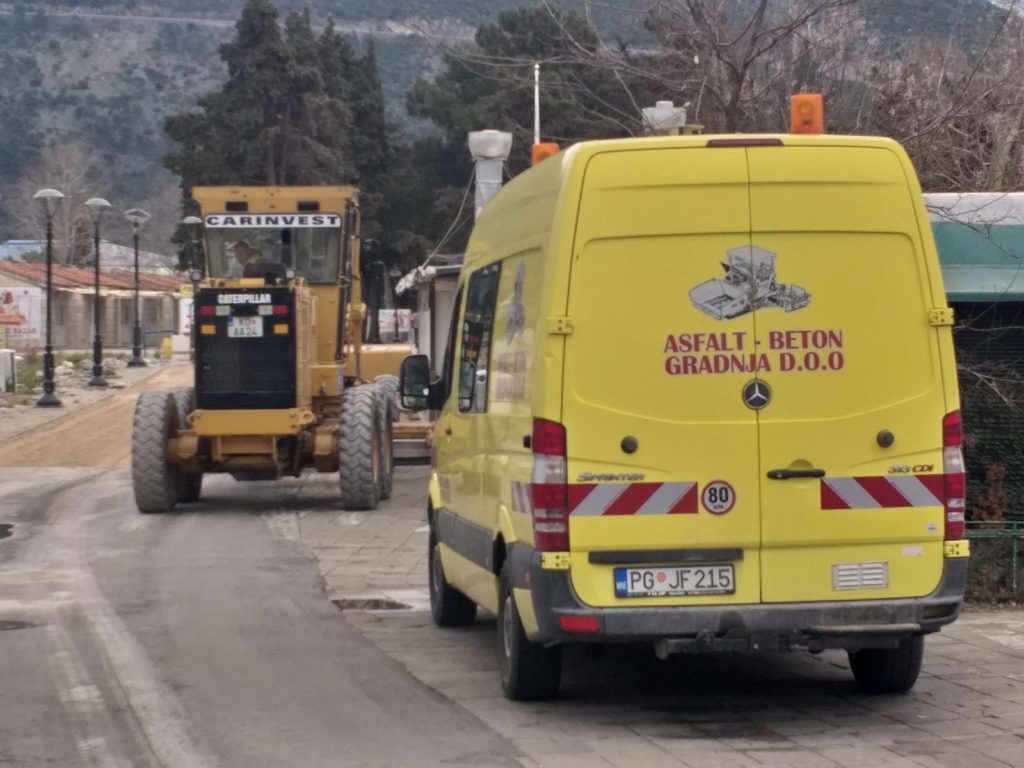The dismissal of the criminal report against the mayor of Budva, Marko Carević, is another in a series of worrying proofs of the manner in which the Special State Prosecutor’s Office deals with corruption, even when it comes to textbook cases of conflict of interest and blatant violations of the law.
On July 17, 2020, Special State Prosecutor Veljko Rutović rejected the criminal complaint against Carević filed by MANS due to the suspicion that, as a covert subcontractor, through his company “Carinvest”, he participated in several tenders announced by the local government headed by him.
Therefore, at the end of July, MANS filed a complaint with the Supreme State Prosecutor’s Office, as the competent institution, against this decision of the Special Prosecutor Veljko Rutović, demanding its review. Three months later, there is still no response from the Supreme State Prosecutor’s Office as to whether anything has been done regarding the issue.
MANS previously published information that Carević concluded as many as 11 contracts with the company “Asfalt Beton Gradnja” from Podgorica, with a total value of nearly two million Euros, and that the company used the equipment of Carević’s private company to perform the works.
On that occasion, we submitted all the contracts that Carević concluded with Asfalt Beton Gradnja to the Special State Prosecutor’s Office, as well as extensive photo-documentation from several construction sites where it is clear that instead of that company, Carević’s company “Carinvesta” is doing the signed contracts. Part of the evidence was the confession of Carević himself from 2019, in which he does not deny that he rented his machines to the company with which he concluded deals as the President of the Municipality.
In the information submitted to us in mid-July, Special Prosecutor Rutović did not state any specific reason for dismissing our criminal report, while the decision was issued only a month after it was filed. On that occasion, Rutović did not issue a decision with reasoning why he rejected the criminal report, what evidentiary actions he took, in what way he examined the evidence submitted with the report, and on the basis of which facts he made the final decision to dismiss the criminal report against Marko Carević.
The case of Carević’s tenders is a textbook example of conflict of interest and corruption, which should not pose the slightest challenge even for the capacity of such Special State Prosecutor’s Office.
The rejection of the criminal complaint against Carević cannot be the result of an objectively and professionally conducted investigative procedure, and the decision made by Rutović was least, if at all, based on the evidence that the State Prosecutor’s Office currently possesses and could obtain during the investigation.
In this regard, we expect that the State Prosecutor’s Office will still reopen the investigation against Carević in the coming period, as was the case with the complaints filed by MANS against his colleagues Miomir Mugoša and Žarko Pavićević, as well as Svetozar Marović, whose cases were immediately rejected or kept in the archives of the State Prosecutor’s Office for years.
Dejan Milovac
MANS Investigative Centre



